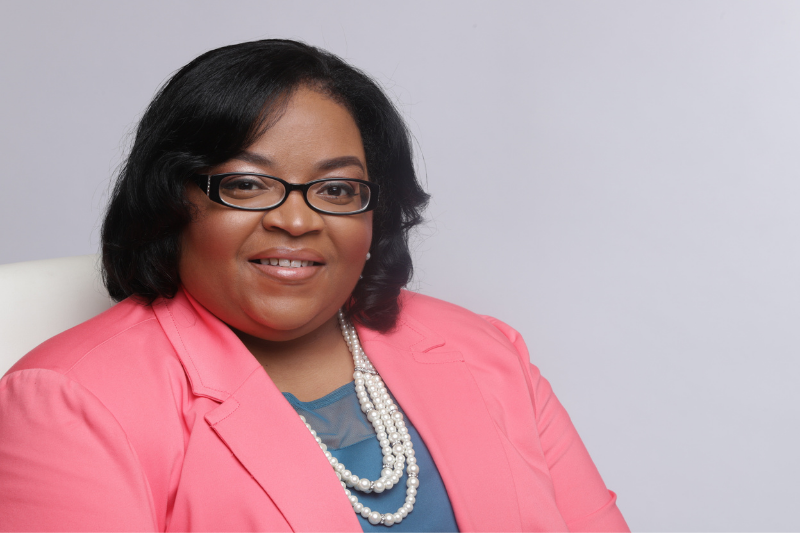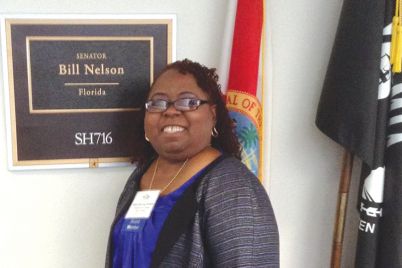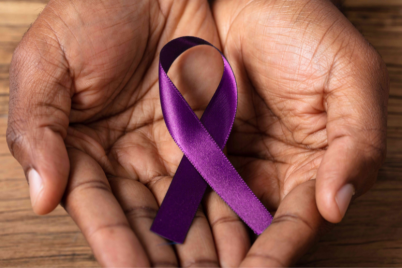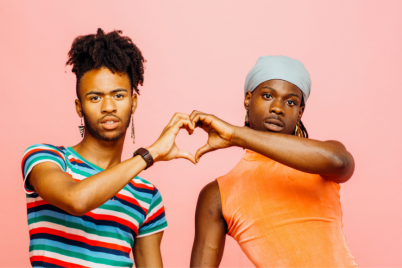Leisha McKinley-Beach, a national HIV consultant, is involved in Pinellas County’s Ending the HIV Epidemic initiative.
By J.A. Jones, Staff Writer
ST. PETERSBURG – Leisha McKinley-Beach, a national HIV consultant, involved in Pinellas County’s Ending the HIV Epidemic initiative, was raised with a strong faith and vibrant church foundation. And while the strict religious codes of her sect initially caused an internal struggle for a young advocate intent on combating the HIV/AIDS epidemic nearly 30 years ago, McKinley-Beach knew that her steps were “ordered by the divine.”
There is indeed something beatific about McKinley-Beach’s energy and demeanor; it’s a light that hasn’t dimmed through many years spent building strategies and programs around HIV. “I actually got my start at the University of Florida — Go Gators!” she laughed. A Florida native from DeFuniak Springs, her destiny was revealed on the Gainesville campus.
While looking to get involved in something — “I already knew I was not a sorority girl” — she was drawn to the AIDS Peer Educators organization. “I joined that group my first week in college, and that literally launched my HIV career.”
HIV wasn’t the public health issue she would have chosen for herself, but she was drawn to sexual health. It was 1991, and “at the time, even though we already saw, and we were hearing, that HIV was affecting Black communities, there still wasn’t a lot of attention centered around us.” At that point, the “face” of HIV/AIDS was white gay men.
But, said the HIV/AIDS expert, just months into college, Magic Johnson gave his historic press conference – giving a Black face to the coverage on HIV. And while McKinley-Beach wasn’t personally impacted through a family member, her work around HIV became both a spiritual and a professional journey.
Raised as a Pentecostal — “the don’t-wear-makeup-hellfire-and-brimstone” kind – McKinley-Beach found herself exposed to many different beliefs, people, and situations upon entering college. While working as a peer educator on campus, she met the first person she knew to die from complications of AIDS: a young, white, gay man who his family had disowned.
“I was in his room the moment he transitioned,” she recalled. As the only female peer educator among those encircling his bed, she recalled, “When he heard my voice, he thought it was his mother.”
At the age of 19, she found herself face-to-face with a difficult decision. Would she offer him the comfort that she could at that time and just “be his mother” as he made his transition — or did she read him the sinner’s prayer, “so that heaven would be his destination,” as her church’s elders would command?
“I just searched my heart,” she said and ultimately decided to let him believe his mother was there. Because, as she felt it, the truth was — “there was a woman in the room that loved him. And then minutes later, he transitioned.”
Still, she struggled with her decision for several weeks, knowing that her church leaders would have wanted her to convince the dying young man to confess his sins to God at the moment of his death. She couldn’t turn to her church mentors because she knew how they would respond.
But one day, walking across campus, McKinley-Beach said she heard “the Spirit speak, saying that I have one assignment in life, and that’s to show love. That’s it. That’s why I’m here. And it made everything right within me.”
She relayed that it became part of her personal mission that in everything she would do going forward, she would do it with compassion and love.
However, just because she was in that place, it didn’t mean that her church mentors or leaders were. She remembered often hearing, “God loves the person, but he hates the sin,” and it didn’t sit right with her.
“I had to come up with a different approach, and the approach was, it’s not my job to change anybody’s doctrines, tradition, or belief. That’s not what I’m called for it. What I am called for is to raise awareness about what is happening with HIV.”
For her, the work was to strip away the labels – whether the words used were “homosexual” or whether they held negative connotations, such as “promiscuous.” For McKinley-Beach, it was simply: “I need you to see past those titles and to see that this is somebody’s daughter, or that’s somebody’s son. That’s somebody who had dreams to grow up and be a doctor or a minister. And now, here you are, having to give the last rites. Can that be our common ground? And can we talk about HIV from that space?”
She added that in advocacy, “We have to meet people where they are. The church has a language, a culture of its own. And when someone threatens that culture, people shut down. They don’t hear what you have to say.” McKinley-Beach has been “blessed,” she said, “to find that common ground and say, let’s start here.”
An example of how church leaders supported the HIV/AIDS work from a place of compassion happened early in her career in Pensacola.
“I was talking with an elder about HIV; she might have been in her 80s. She became a great advocate for me.” McKinley-Beach remembered how the elder called her to say she’d talked to the church pastor about supporting some of the “hive children” for Christmas. She recalled the elder’s excitement as she told her that the pastor had agreed.
Although McKinley-Beach said she didn’t have a clue what the elder meant by “hive children,” she told the woman, “That is so wonderful!”
“I was thinking, how in the world am I gonna find out who the hive children are?”
Finally, it came to her that the elder actually meant HIV children.
“What I realized was, she’ll never be the person that’s out doing HIV one-on-one, she’ll never be the person that’s talking about risk reduction with condoms — but something moved her compassion, to want to be able to make sure that the HIVE children had Christmas like everybody else. And I thought that was just such a beautiful moment.”
Read Part Two of this article here.
To learn more about Leisha McKinley-Beach and her work, visit Leisha.org.








